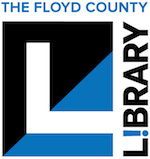As you may know, the hit musical Hamilton was just playing across the river in Louisville, calling many of us to see it, listen to it, and learn more about the founders of our nation. As you’re even more likely to know, next week brings July 4, Independence Day in this country (reminder: the library will be closed that day). In honor of the occasion, I’ve pulled together some historical nonfiction to explore the early history of the United States.
Alexander Hamilton by Ron Chernow
(2004, 788 pages; available in print and audio CD formats)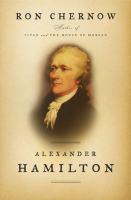
If you’re into the musical Hamilton, you may know that this biography is what inspired Lin-Manuel Miranda to write the show. Chernow even gets a writing credit on the musical! A brief overview, for the uninitiated: Alexander Hamilton was the Secretary of the Treasury under George Washington, and he racked up a surprising amount of political power before inadvertently destroying his reputation and dying in a duel at the age of forty-nine, slain by then-Vice President Aaron Burr. For a hefty tome, it’s surprisingly readable and compelling, detailing the sensational history of murder and political sex scandals that make for such entertaining material on stage, more than two hundred years later. There is a wait list on this one, but it’s worth the wait; although I’ve never been spurred to create a record-setting hip hop musical, I’ve read this book twice and both times emerged feeling educated and inspired.
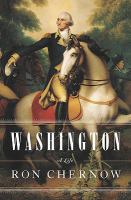 Washington: A Life by Ron Chernow
Washington: A Life by Ron Chernow
(2010, 904 pages; available in print, audio CD, and digital book formats)
I like to get a diversity of authors in these lists, but I couldn’t help myself when it came to this one– yes, it’s also by Ron Chernow, and, yes, it’s even longer, but this is the book that won Chernow his Pulitzer Prize in biography. America’s first president has been often mythologized as a larger than life figure, but Chernow provides a picture of him here with characteristic eloquence and vitality. It follows George Washington from birth to death, showcasing the charisma Washington possessed and using extensive archival evidence the way he was perceived in his own time. It’s been called the best biography of Washington ever written. If you have an interest in colonial or Revolutionary history, this is one not to miss.
Founding Mothers by Cokie Roberts 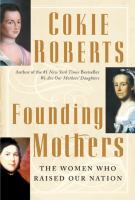
(2004, 359 pages; available both in adult and children’s print book versions)
Much is made of the “founding fathers,” but I would be remiss not to mention that most, if not all, of these men were supported by the extraordinary women in their lives, without whom their accomplishments might not have been possible. Drawing upon personal correspondence, private journals, and even favoured recipes, Roberts reveals the often surprising stories of these women, bringing to life the everyday trials and extraordinary triumphs of individuals like Abigail Adams, Deborah Read Franklin, Eliza Pinckney, and Martha Washington. The book contains the stories of forty women, leaving fewer than ten pages per figure, making this perfect for the reader who wants a bite-sized overview of the women who were left out between Betsy Ross’s flag and Dolley Madison’s White House rescue.
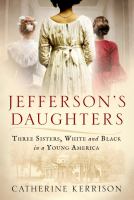 Jefferson’s Daughters: three sisters, white and black, in a young America by Catherine Kerrison
Jefferson’s Daughters: three sisters, white and black, in a young America by Catherine Kerrison
(2018, 425 pages: available in regular print as well as large type)
Any discussion of the founding of America is incomplete if I skip over the more troubling aspects of colonialism, such as slavery. Thomas Jefferson, widely respected as the author of the Declaration of Independence and the country’s third president, kept slaves all his life and had several children with one of his slaves, Sally Hemings (who was herself, in turn, likely the daughter of her mother’s master and half-sister to Jefferson’s wife). Their daughter, Harriet Hemings, is one of the three central figures in this joint biography, along with Jefferson’s two daughters with his wife, Martha and Maria Jefferson. Using never-before-published documents and DNA testing, Catherine Kerrison has constructed a richly interwoven tale of three women who shared a father and very little else, whom the laws and customs of the new America treated very differently.
Whichever part of history you focus on this summer, you’re sure to learn and explore; as L.P. Hartley once wrote, “the past is a foreign country.”
Let me know your favorite resources on American history and politics, and be sure to tally up your minutes for summer reading– any of these should qualify you for a prize!
